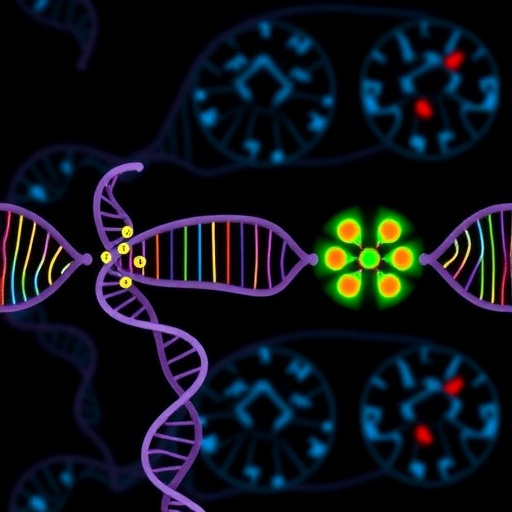Recent advancements in biomedical engineering have unlocked intriguing insights into the complex interplay between various human organs and their relationships with major clinical outcomes. A systematic multi-organ Mendelian randomization (MR) analysis recently conducted surfaces a promising paradigm shift in our understanding of disease etiology through genetic associations derived from imaging phenotypes. This research demonstrates how the amalgamation of cutting-edge imaging technologies and genetic analyses can illuminate the pathways linking diverse health conditions and anatomical structures.
Mendelian randomization stands as a robust statistical framework that employs genetic variants as instrumental variables to assess causality between phenotypes effectively. This experimental design utilizes natural genetic variation to bypass some of the confounding limitations that traditional observational studies frequently encounter. Consequently, researchers can decode complex relationships among quantitative imaging traits and various clinical outcomes spanning multiple organ systems, leading to a deeper comprehension of health and disease.
The analysis at hand evaluated an impressive dataset encompassing 402 imaging traits along with 372 clinical outcomes. This breadth of research highlights an intricate network of 184 Mendelian randomization associations pertaining to 58 diseases and 56 distinct imaging traits. These correlations provided enlightening perspectives on conditions spanning an expansive scope that includes the brain, heart, liver, kidney, lung, pancreas, spleen, adipose tissue, and skeletal systems. Such associations unveil the genetic ties that link disparate organs and elucidate the pathophysiological interactions that define human health and disease.
Intra-organ associations observed in this analysis revealed compelling insights, particularly regarding Alzheimer’s disease and cognitive function. The bidirectional genetic links indicate that alterations in brain function may not only be a result of Alzheimer’s pathology but might also play a role in its etiology. This finding is groundbreaking, as it redefines the trajectory of research focusing on neurodegenerative diseases, signaling the necessity for an integrative approach that considers not just the brain, but its connections to other bodily systems.
Moreover, the research delineated inter-organ associations with profound implications for clinical practices. Take, for instance, the correlations identified between heart disease and brain health. This discovery underscores the necessity to view cardiovascular health through a broader lens, recognizing that heart conditions may cascade into neurological ramifications. Such relationships can potentially inform therapeutic strategies that emphasize holistic patient care, bridging cardiovascular ailments with neuroprotective measures.
The analysis also shed light on metabolic disorders, exemplified by diabetes, which exhibited genetically rooted Mendelian randomization effects across several organs. The findings illustrate how insulin resistance and glucose metabolism intricately intertwine with anatomical function, affecting not only the pancreas but also modifications in liver and adipose tissue. This multi-organ perspective is crucial as it pushes for a more comprehensive understanding of metabolic pathways and their broader consequences on health.
As the study progresses, it highlights possible clinical targets for further mechanistic investigations. The identification of genetic connections spanning multiple organs opens avenues for developing innovative intervention strategies. Research efforts could pivot toward designing drugs or therapies that not only address single organ dysfunction but also consider the multifactorial origins of disease that affect various organ systems.
Furthermore, the inherent potential in leveraging imaging phenotypes for understanding organ function cannot be overstated. With advancements in imaging technologies, researchers can visualize structural and functional characteristics in unprecedented detail, allowing for a more nuanced view of how diseases manifest across different tissues. This capacity to integrate genetic information with high-resolution imaging enhances our understanding of the biological underpinnings of multifaceted health conditions.
Through this innovative approach, researchers are laying the groundwork for personalized medicine tailored to the intricate genetic landscapes influencing individual health profiles. By deciphering the links between genetics, imaging phenotypes, and clinical outcomes, healthcare professionals could potentially preempt the onset of diseases by identifying individuals at risk based on their unique genetic makeups and organ profiles.
The insights garnered from analyzing the interplay between various organs may also spur public health initiatives aimed at early detection and preventative measures for diseases. By prioritizing a multi-organ viewpoint, policymakers and healthcare providers can address risk factors that contribute to the development of complex conditions, thereby improving population health outcomes.
In conclusion, the findings from this comprehensive study bring forth a promising landscape for future explorations in multi-organ genetic connections. As researchers continue to unravel the nuances of organ interrelationships, their work carries the potential to reshape clinical practices, enhance disease management strategies, and ultimately promote healthier lives through a deeper understanding of human biology at the molecular level. The implications of incorporating such a holistic approach cannot be understated as the healthcare community collectively strives for advancements that honor the complexity of the human body.
The integration of emerging technologies, including genetic research and sophisticated imaging, paves the way for breakthroughs that could revolutionize the future of diagnostics and therapeutic interventions. With continuous research in this area, we look forward to valuable insights that will not only enhance clinical outcomes but also enrich our understanding of the intricate networks that govern the human organism.
Subject of Research: Multi-organ genetic connections using imaging and clinical data through Mendelian randomization.
Article Title: Inferring multi-organ genetic connections using imaging and clinical data through Mendelian randomization.
Article References:
Shu, J., Zheng, R., Chirinos, J. et al. Inferring multi-organ genetic connections using imaging and clinical data through Mendelian randomization.
Nat. Biomed. Eng (2025). https://doi.org/10.1038/s41551-025-01554-x
Image Credits: AI Generated
DOI: https://doi.org/10.1038/s41551-025-01554-x
Keywords: Mendelian randomization, multi-organ research, imaging phenotypes, clinical outcomes, genetic variants, brain health, heart disease, metabolic disorders, personalized medicine.




